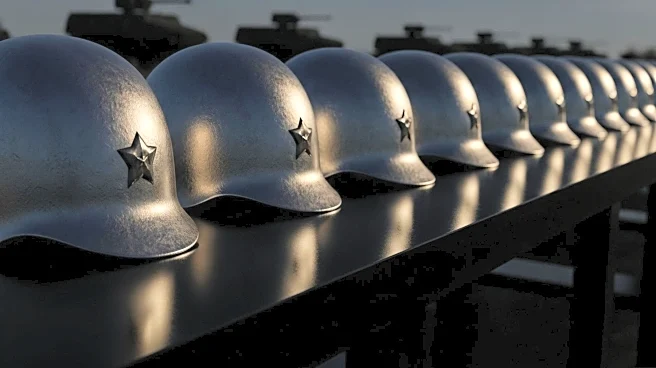What's Happening?
President Trump has deployed the National Guard in Washington, D.C., citing a crime emergency, despite a reported drop in violent crime rates. The deployment is legally justified due to the unique status of D.C., where the President can command the National Guard without local consent. Trump has expressed intentions to extend this federal crackdown to other cities like Chicago, which presents legal challenges. Georgetown University law professor Steve Vladeck explains that while the President can federalize the National Guard in states, it requires specific conditions to be met, such as local authorities failing to enforce laws. This move could face significant litigation risks, especially if local leaders oppose the federalization.
Why It's Important?
The potential expansion of National Guard deployment by President Trump raises significant concerns about federal overreach and the balance of power between state and federal authorities. If Trump proceeds with deploying the National Guard in cities like Chicago, it could set a precedent for increased federal intervention in local law enforcement, challenging long-standing norms that separate military and domestic policing. This action could lead to political and legal battles, impacting public policy and civil rights. The situation underscores the tension between federal authority and state rights, with implications for governance and civil liberties.
What's Next?
If President Trump attempts to federalize the National Guard in other states, legal challenges are likely to arise from city and state leaders. These challenges could argue that the conditions for federalization are not met, or that the National Guard's role should be limited to protecting federal property. The outcome of these legal battles could influence future federal interventions in local law enforcement. Additionally, budgetary constraints may limit the duration of such deployments, as funding for extended military presence in cities could become a contentious issue.
Beyond the Headlines
The deployment of the National Guard in domestic law enforcement contexts raises ethical and historical concerns. Historically, the U.S. has maintained a clear separation between military and civilian law enforcement to prevent the misuse of military power. President Trump's actions challenge this norm, potentially leading to a shift in how military forces are used domestically. This development could have long-term implications for civil-military relations and the role of the military in public safety.









